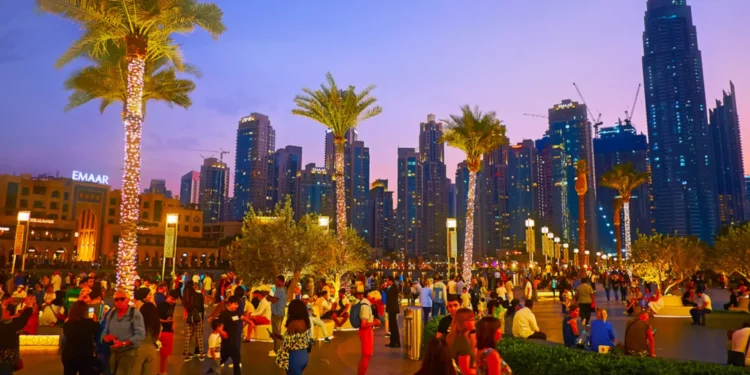This budget is indicative of Dubai’s commitment towards prioritizing the wellbeing of its residents.
Dubai has approved its government budget for the years 2025-2027 at Dh302 billion in revenue and Dh272 billion ($74 billion) in expenditure. This is the largest ever budget in the history of the Emirate.
According to His Highness Sheikh Mohammed bin Rashid Al Maktoum, Vice President and Prime Minister of the UAE and Ruler of Dubai, 46% of next year’s budget will go into infrastructural development such as the construction of a new airport, roads, drainage systems, bridges etc. This is important considering Dubai is one of the fastest growing cities in the Arab world. Taking to the social media website X, Sheik Mohammed announced the news adding that another 30% has been allocated towards healthcare, education, housing and similar social development projects.
This budget is indicative of Dubai’s commitment towards prioritizing the wellbeing of its residents. The budget aims to establish the long-term financial stability aspirations of the Dubai government. The government has also set aside a Dh40 billion portfolio for public-private partnerships so as to ‘safeguard the financial surpluses for future generations.’
The Emirate’s long-standing development goals such as Dubai Plan 2030, the Dubai Economic Agenda D33, and the Quality-of-Life Strategy 2033 have been covered in this budget with Dh5 billion in revenues being set aside for these projects. The primary goal of the 2025 budget is to enhance social sector development in Dubai and therefore, the allocation of resources towards initiatives such as Education Strategy 2033 and the Dubai Social Agenda 33 are reflective of this projected target.
According to Abdulrahman Saleh Al Saleh, Director General of Dubai Finance, the budget is proposed to not only look at the Emirate’s future of financial stability but also enhance investment prospects and boost competitiveness and transparency. This budget strives to maintain a balance between income and spending, according to the UAE cabinet.
Dubai is one of the most attractive business centres in the Middle East and has witnessed a steady growth due to expanding businesses and investments, a lot of which has been possible due to their visa flexibility. The second-largest Arab economy reported that the GDP had increased by 3.4% in the first quarter of 2024 and is slated to increase by 4% by the end of the year. This increase comes after a marginal slump during the pandemic years and is a welcome sign of an economy in recovery, particularly due to the stable and expanding non-oil sector.
The non-oil sector of Dubai has been a constant source of stability and growth, attracting consistent investments and yielding profits. According to the UAE Central Bank, this sector is projected to grow at 5.2% this year and the implementation of structural changes such as allowing 100% ownership of foreign businesses as well as favourable tax reforms will facilitate sectoral growth at 5.3% in the following year.
Sheik Mohammed said that this budget will assure a conducive environment for local as well as international businesses. Abdulrehman Saleh also commented that the reserving of annual surpluses will be the bedrock which promotes financial stability and strength of the Emirates.
18% of total expenditures in the budgetary allocation have been directed towards the strengthening of the security, justice and safety sector. Along with this digitalisation of the economy is also a top priority in this proposed three-year budget.
Ahmad Ali Meftah, Acting Executive Director of the Central Accounts Sector at Dubai Finance said that pilot projects to enable digitised government fee payments are being set-up and streamlined.
Biometric Payment Systems are also in collaboration with government facilities. These initiatives are meant to steer the economy towards the Emirate’s goal of Dubai’s Cashless Strategy, which aims to achieve 90% cashless transactions in both public and private sectors by 2026.


















